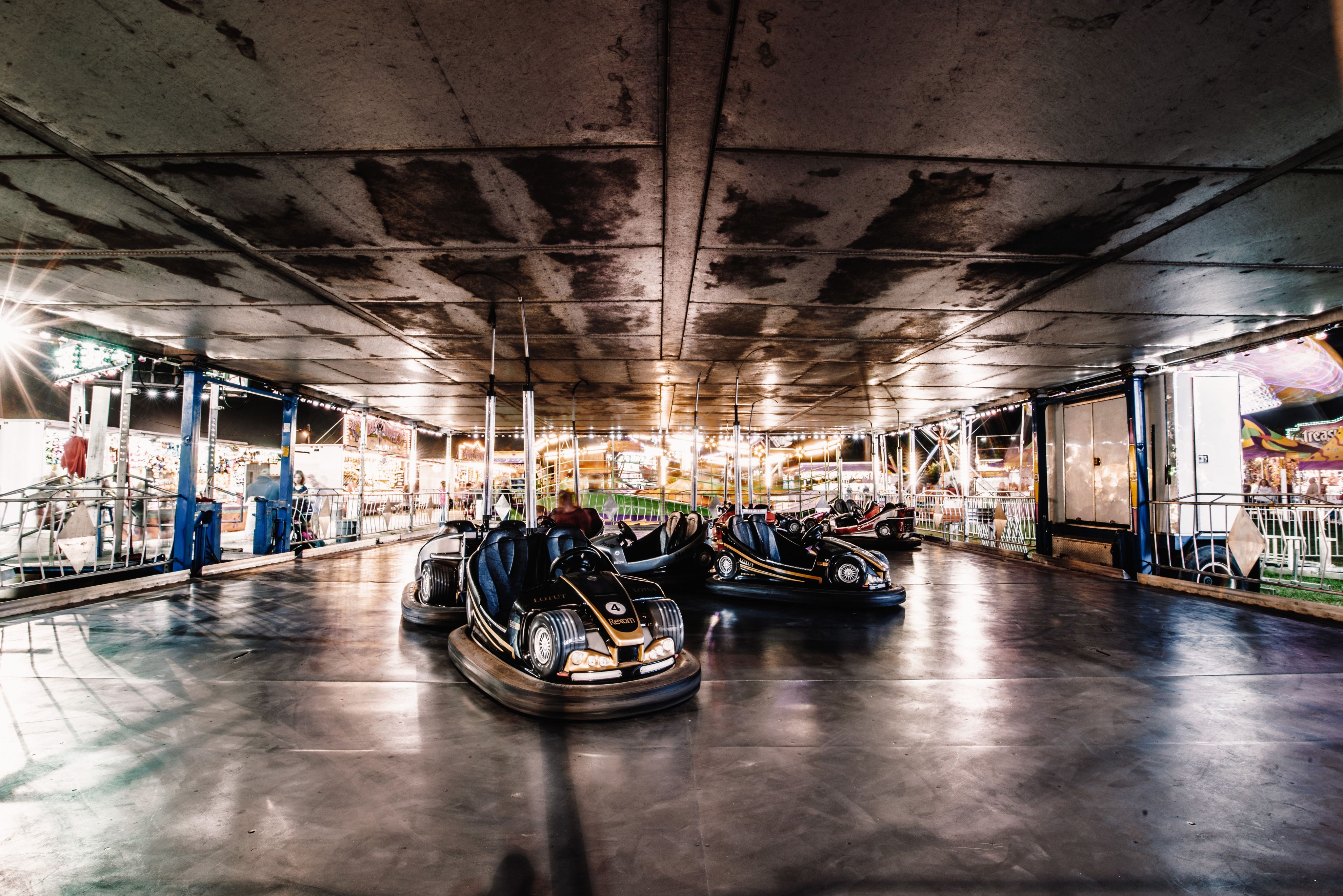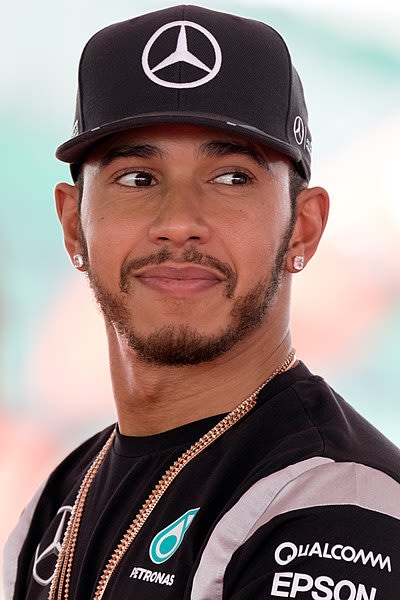Karting: Paving a way to UK motorsport success
A simple hobby for some, a first step to greatness for others
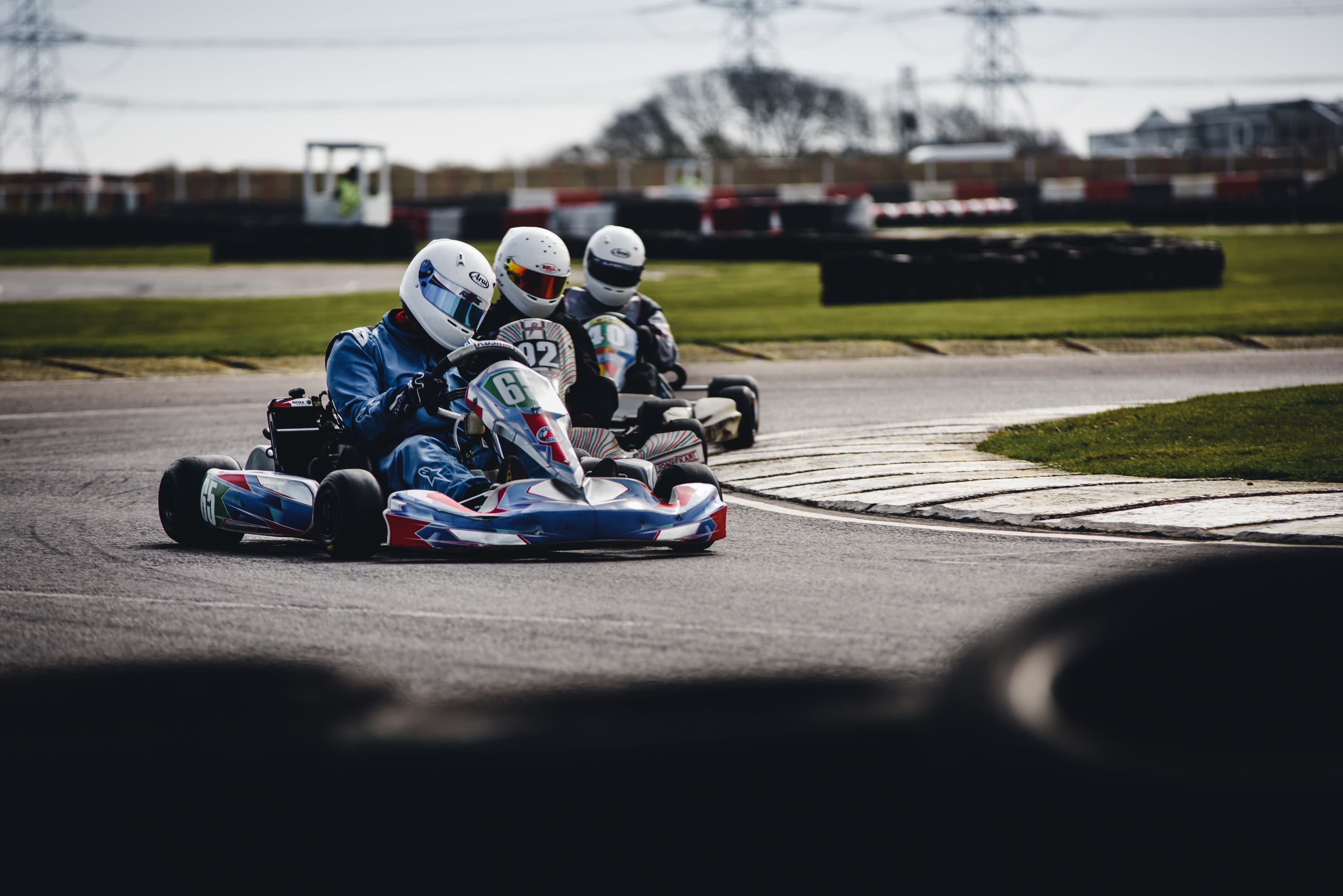
To some, karting is a fun activity you do with some friends every now and then. For some, it’s the first step on a journey to become the fastest human on four wheels.
An endless number of youths dream of being one of the fastest in the world, begging their parents for a chance to pursue their ambitions. The UK has earned a reputation for giving birth to some of the finest drivers to smoke rubber on the tarmac.
But how did this happen? How does racing in these smaller speed machines help the nation form some of the greatest drivers in motorsport's history?
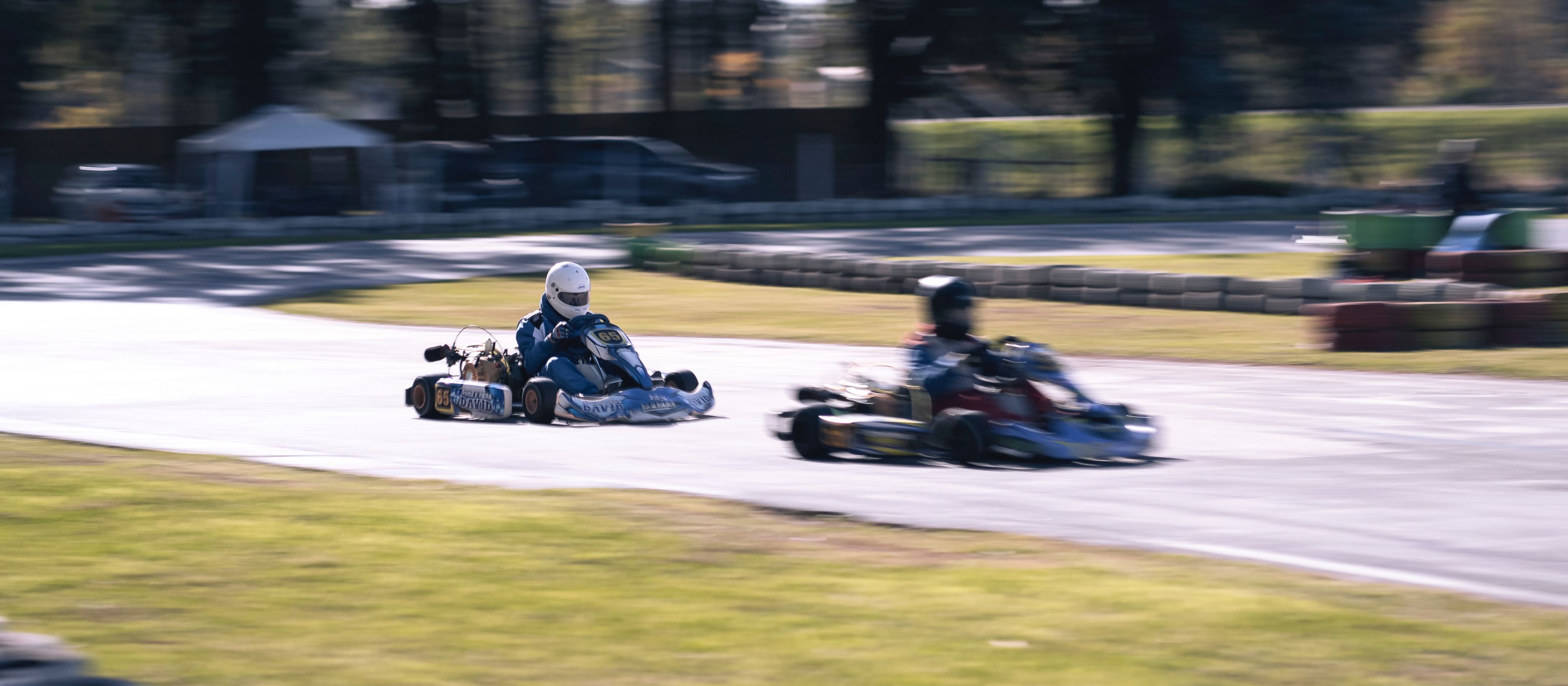
How does one start their karting journey?
Graham Smith has been a part of the karting world since 1987 as a key fixture in Motorsport UK’s setup for the most accessible form of racing.
He acts as both an Administrator of the Association of Racing Kart Schools (ARKS) and as Secretary of Shenington Racing Club and the Association of British Kart Club (ABKC).
The ARKS represents a group of karting schools in the UK that are accredited by Motorsport UK, the governing body of all four wheel regulated racing in the country.
Smith explained how the schools work, providing guidance to newcomers and how those seeking to start their journey should pursue.
He said: "Initially we encourage people to do a bit of indoor karting. There’s a karting pathway we publish along with Motorsport UK. There’s an indoor karting British championship now at Team Sport which I think has got 30 kart tracks around the country.
"And then they could move on to ‘Arrive and Drive’ in which they don’t need to own their own kart, which is a lot cheaper than getting your own. Places like Club 100 offer that kind of system down to eight year old level.
"Then we would encourage them to go to one of the kart schools where they can learn more about outdoor racing where they might have their own kart or hire one from a racing team, who supply all the equipment.
It’s always lower cost in the long run to have your own kart because you’re not paying someone else to look after it. The schools can help them in going on that journey, to take their test for that license and have practice days on the kart, either theirs or supplied by the school.
"Many others go on to become team managers, mechanics, working as admins inside of motorsport. Many go to schools, college to pursue engineering, vehicle dynamics or motorsport.
“There’s a lot of opportunities for people to come through karting and learn about motorsport.”
The license test process is split into two sections; the written test (testing on knowledge of flags regulations and how events are run) and the driving test. To apply, one must also check with Motorsport UK to see whether they require a Motorsport UK Karting Starter Pack.
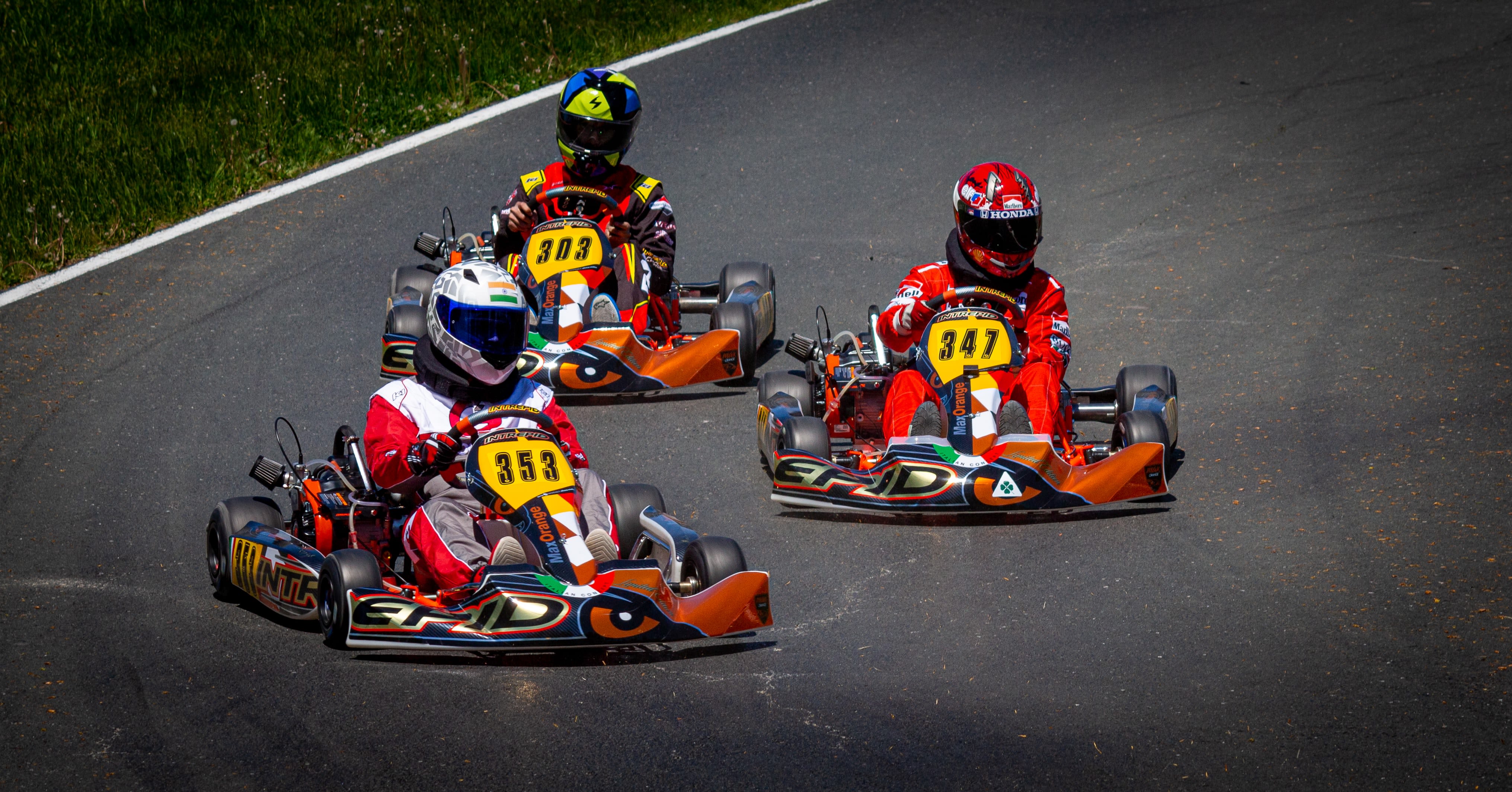
Dominance in the world's most famous racing series
The first thing that comes to mind when ‘racing’ or any synonym comes to attention is Formula 1, the most popular medium of four-wheeled competition.
When you take a look at the names on the Formula 1 grid, there’s a quality of options for UK fans to pick for a home driver to cheer on.
The arguable G.O.A.T. (Greatest of All Time) Lewis Hamilton continuing his quest to secure his legacy, with a young partner at Mercedes in George Russell who is building up his own legacy.
At McLaren, Lando Norris has emerged as a rising young superstar leading the Woking factory, while Thai-Brit Alexander Albon has revitalized himself at the helm of former giants Williams.
The three Brits (Albon racing under the Thai flag) represent the UK as the nation with the most drivers on the grid right now, which holds the current title of most successful nation.
Smith, talking about these stars, said: "There’s so many and most of them start when they’re six, seven years old, winning karting championships, getting noticed by McLaren (Hamilton) and Red Bull (Albon). They found such a good grounding in karting."
Graph 1: A list of nations with the number of driver champions and total championships under their flag in Formula 1
Alongside Hamilton, the list of UK champions are up among the greatest to race on four wheels. Jenson Button, Damon and Graham Hill, Sir Jackie Stewart, Mike Hawthorn, Jim Clark, James Hunt, Nigel Mansell and John Surtees.
Expand the list to race winners and the UK’s dominance becomes greater, with 308 wins by 20 different drivers including Russell, David Coulthard and Stirling Moss.
Graph 2: A list of nations with the number of different winners under their flag and total wins in Formula 1.
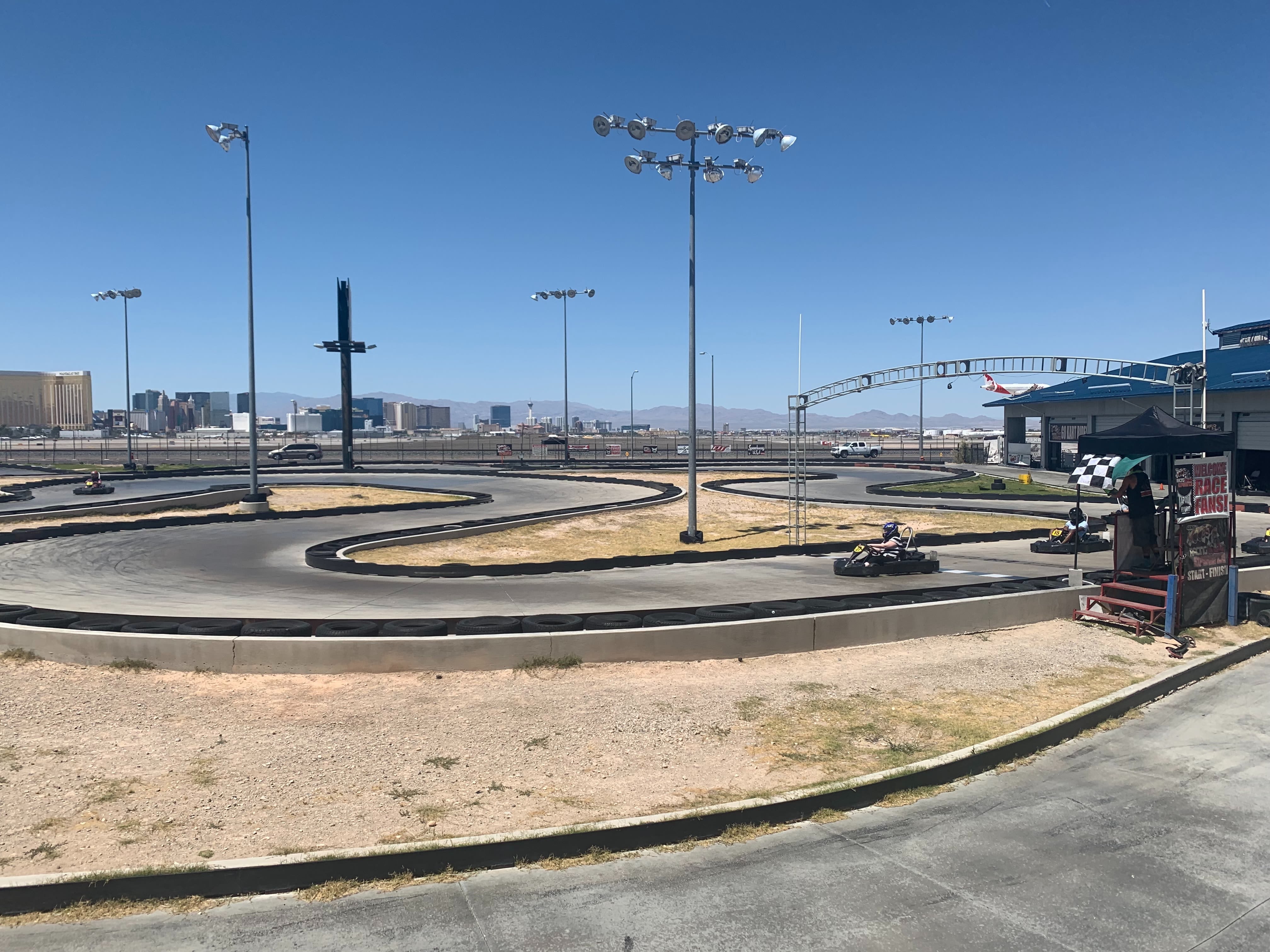
Why are these British drivers so successful? Graham Smith gave an insight into how karting helps the development of young talents.
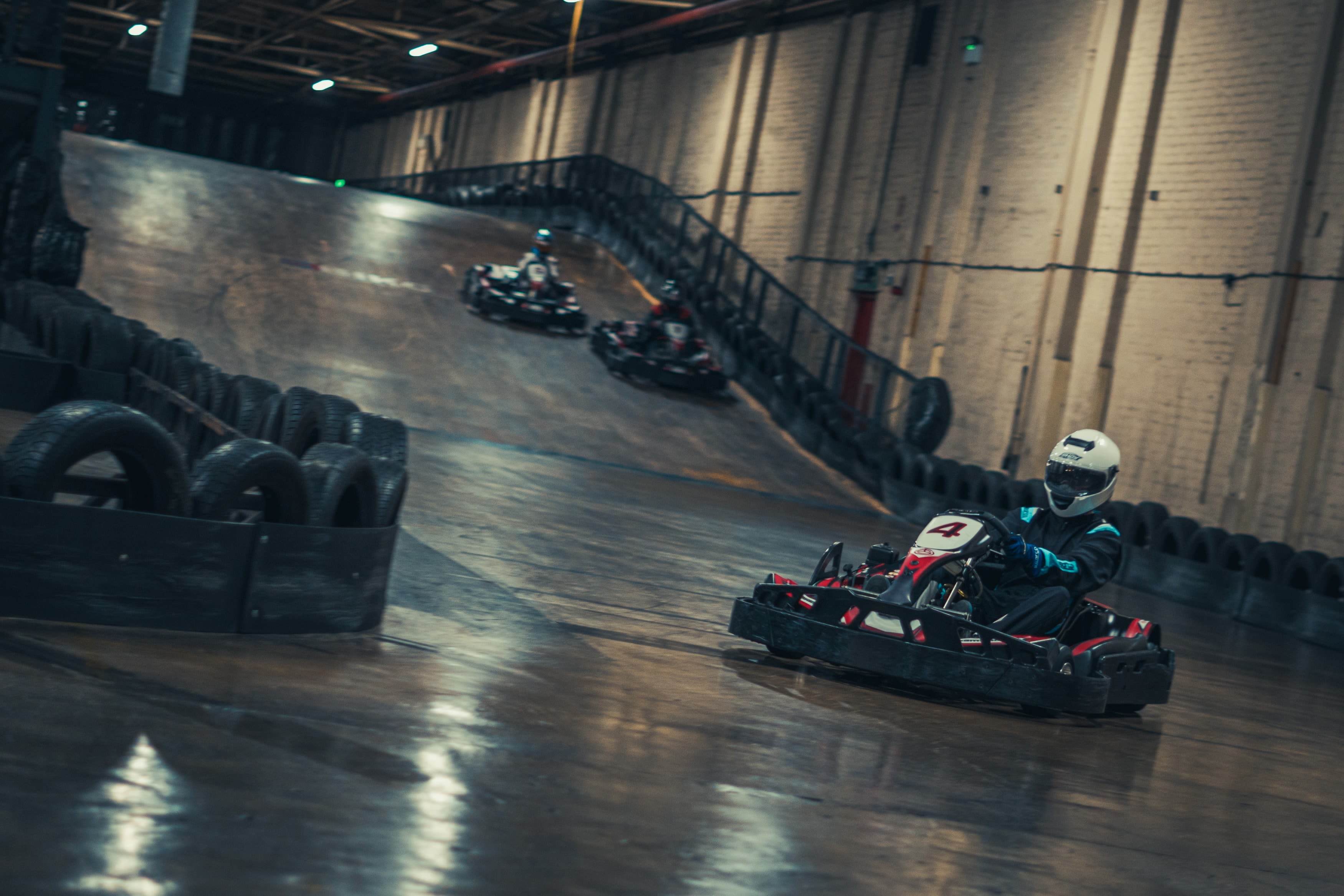
The best learn from early days
As for how the karting translates into the single-seater competitions, Hamilton himself has said how much his experience from karting helped him.
Flashback to the F1 2014 Bahrain Grand Prix, the Brit had just come off victorious in a sensational battle with his teammate Nico Rosberg.
When asked about the battle in the post-race press conference by Italian journalist Paolo Ianeri, Hamilton reminisced about his karting days.
He said: "Me and Nico haven’t had a race like that since back in our karting days. I did think today, I was just saying to him today, there was a race we did years ago in… I don’t know what year it was, in karting, our first race together.
"He was leading the whole way and in the last lap I overtook him and won the race. I thought today for sure he’s going to do the same to me, and get me back. That’s what was going through my head."
When both he and Rosberg were asked to describe their duel later by Livio Orrichio, Hamilton continued to call back his lessons on the smaller vehicles.
He said: "But for me it feels like a long time that I’ve been able to have a real racer’s race and really use whatever skills that I’ve acquired over the years as a youngster in karting.
"Being able to apply them in Formula One is a lot harder but to be able to pull them out of the bag and use them again...
"The time that I went round the outside or got back, just timing it right – you know, it’s a fantastic feeling to be able to do that. It’s one of the greatest feelings when you obviously come out on top."
Hamilton's racecraft was hailed from the moment he stepped onto the world stage, with that Bahrain race being a prime example of it on display. Honed from his younger years, all that he learned from still proves vital now at his peak.
Fellow World Champion and 2010-12 McLaren teammate Jenson Button was known for his prowess in difficult conditions, and those skills came quite early in his journey.
As detailed in his autobiography, Life on the Limit (a good read), the eight-year-old Button had just gotten his first kart as a Christmas present when he impressed at his first race in wet conditions at the Clay Pigeon kart circuit in Dorset.
While the raw gift was on display, Button would train his control and kart feeling by using slick tires in wet conditions under his father's guidance.
Those hours of practice led to the hallmark of Button's skillset in a F1 car; his exception car control and ability to find grip when others struggled. Skills that led to iconic moments such as his 2011 Canada triumph and the 2009 World Championship.
Credit to Morio (Wikimedia Commons, CC BY-SA 4.0)
Credit to Morio (Wikimedia Commons, CC BY-SA 4.0)
Lewis Hamilton, seven-time F1 champion, made his first steps when eight years old at the Rye House Kart Raceway at Hertfordhshire.
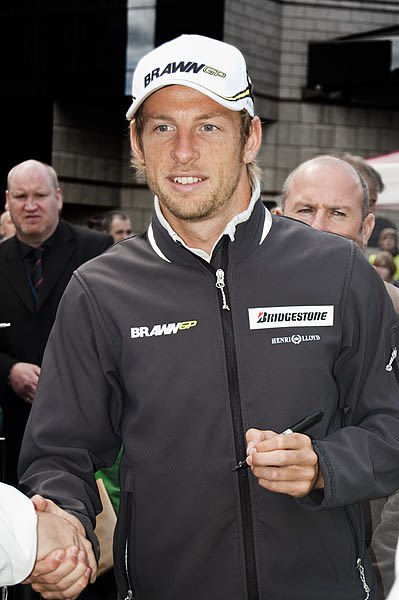
Credit to Luke Hayfield (Flickr, CC BY 2.0)
Credit to Luke Hayfield (Flickr, CC BY 2.0)
Jenson Button, the 2009 F1 Champion, had a stellar karting resume. A triple British Open Karting champions and the youngest winner of the European Super A category.
What has changed over time?
While still the ideal location for the beginning of a racing career, the scenery of karting has seen changes in front of Smith’s eyes from the 80s to current day.
He said: "Karting’s changed over the last few years because from around the late 90s, we started to get commercial organisations providing karting classes they developed and supplied. Previous to that, people bought different karts, different engines all of which were eligible for a different class. And also in the last few we’ve an awful lot of increase in unregulated karting.
"Motorsport UK is the governing body of all four-wheeled motorsport in the UK but recently we’ve had organisations, venues and championship organisers that have gone off on their own and don’t want to work under Motorsport UK. So now we’ve got a proliferation of championships and venues that offer unregulated racing.
"One of the other things that has happened in the last decade or so is the proliferation of teams. Back in the previous century, people tended to run individually. The parents would look after the child, prepare the karts and so on but more recently it seems that many parents don’t want to get their hands dirty, don’t want to learn to look after the kart or engineer the kart.
"So they pay teams to do it and that’s meant more money coming into the sport, going into teams so now they’re offering service to people, putting the costs up. Whereas before, you could probably buy a kart for a couple thousand pounds, and maybe spend the same in a year now people are spending tens, if not hundred thousands of pounds a year, which is just crazy.
"Even with not much, they are still spending around £20,000 to be fairly competitive at a national level. So yes, it is much more a rich person’s sport than it used to be. Some local clubs like ours, we offer economy classes where you could, once you own a kart and we only allow second-hand karts at that class, do a weekend for around £150 with second-hand tyres, replacements to chains and the sort.
"So unless you have crash damage, you’d only pay that much which includes the entry and practice fee but not travel or any overnights. Once you start traveling and living in hotels, paying for a team, the costs just go up."
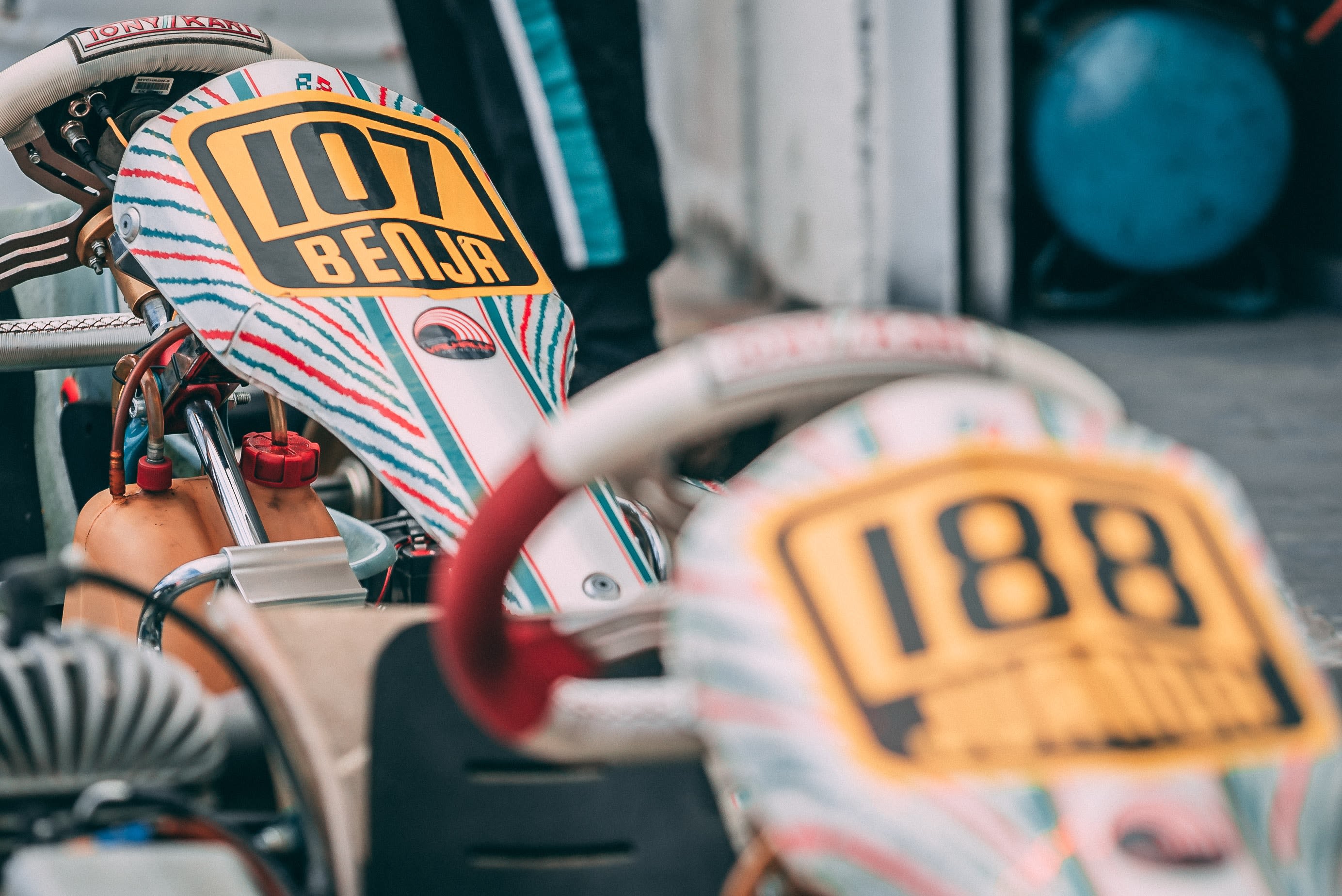
Expanding beyond Formula 1
While Formula 1 is often regarded as the top of the car racing world, the spread of UK success spreads into all sorts of disciplines.
Endurance racing is a completely different breed compared to the shorter, faster spurts of formula racing, yet viewed in high regard in the motorsport universe.
Kent native Mike Conway grew up racing karts at Rye House just like Hamilton and Button, becoming a rival of the former and others such as current IndyCar star/former F1 regular Romain Grosjean in the GP2 series.
While his pathway didn’t take him to a full-time Formula 1 seat (he was a test driver for Honda F1), he would go on to become an icon of the endurance racing world instead.
After years in the IndyCar scene, Conway joined the FIA World Endurance Championship in 2013 and became a fixture in the dominant Toyota Gazoo Racing Team, where he still belongs to today.
The result? A two-time FIM Endurance World Champion in 2019/20 and 2021, as well as winning arguably Motorsport’s finest race, the 24 Hours of Le Mans.
The 2021 Le Mans triumph came after many agonizing years of close calls for Conway and his teammates Kamui Kobayashi and Jose Maria Lopez, but they finally had achieved one piece of the ‘Triple Crown’.
Another example of a successful UK figure, Anthony Davidson, also made his debut in karting before gaining success in the endurance sportscar world.
Though more known for his time as a commentator on BBC Radio and Sky Sports, the Hertfordshire native did have a brief spell in F1 in 2007-08 before becoming an endurance world champion like Conway in 2014.
Davidson won numerous British karting championships and was a runner-up in the European Formula A (now KF1) Championship, the highest level of kart racing. He grew up as a rival to Jenson Button during their karting days together.
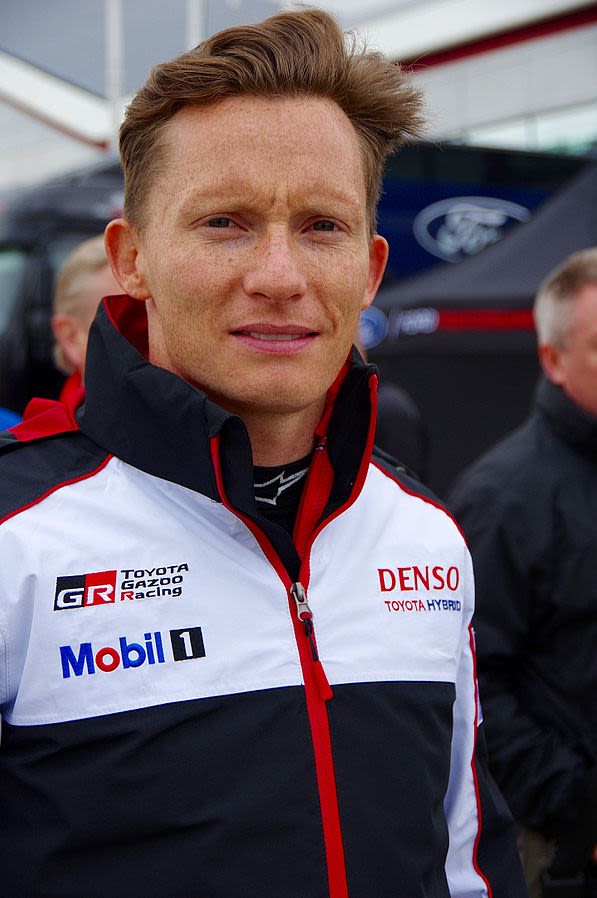
Credit to David Merrett (Flickr, CC BY 2.0)
Credit to David Merrett (Flickr, CC BY 2.0)
Mike Conway recovered from a terrifying crash at the Indianpolis circuit in IndyCar to put his name in the history books as a winner of the fabled 24 Hours of Le Mans 11 years later.
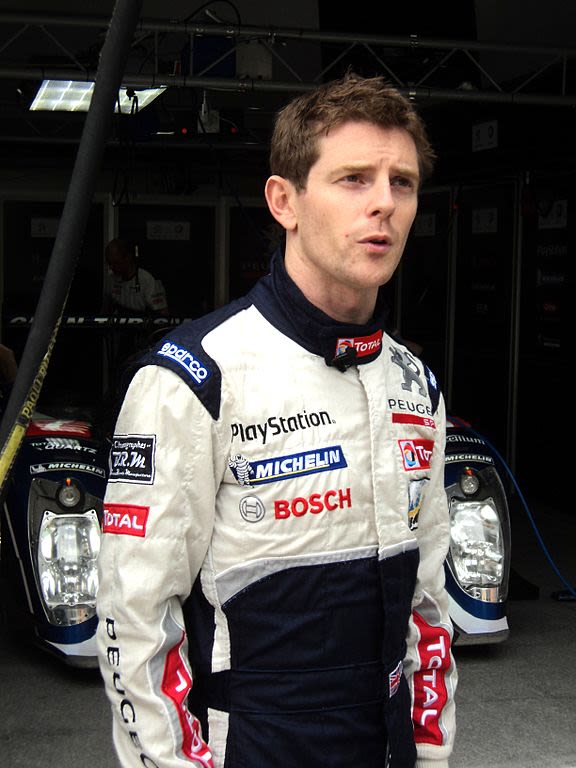
Credit to Ngchikit (Wikimedia Commons, CC BY-SA 3.0)
Credit to Ngchikit (Wikimedia Commons, CC BY-SA 3.0)
Anthony Davidson retired from competitive racing in 2021. He is now a development driver for Mercedes AMG Petronas F1 alongside his commentating duties for Sky Sports F1 and the FIA Endurance World Championship.
Quiz Time!
Can you answer these karting based questions? (Get all of them right and you win an imaginary high-five)
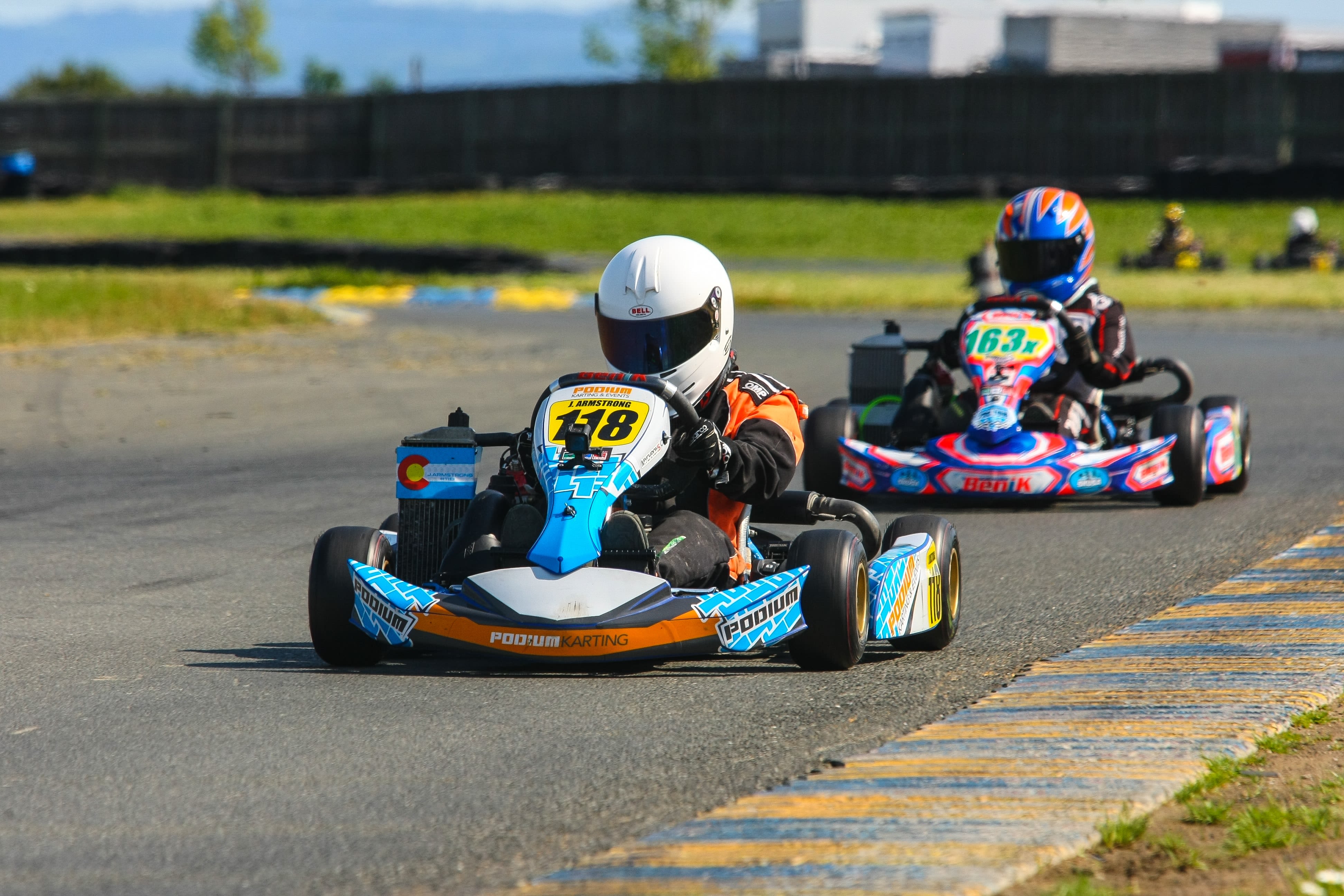
The 'paywall' of progress that Smith referred to is a common problem in all of motorsport, with the amount of needed investment evolving over time. The sport has gotten richer and thus future talents need more financial support around them to put themselves in the spotlight.
Through it all, the road has largely stayed the same from when Smith first got involved in this high-octane world. The price is higher, the competition is fiercer, but the glory and passion remains the same.
Karting opened the door for so many talents to blossom and create their own paths, and the UK is still among the best to nurture future superstars. With an already established core in Formula 1 and other top racing series, the young pretenders have their idols in sight to target.
From highly touted Formula 2 prospect Oliver Bearman to reigning British Minimax champion (and now European Championship driver) Noah Wolfe.
The familiar Union Jack flag is sure to keep waving above the podium for years to come.
